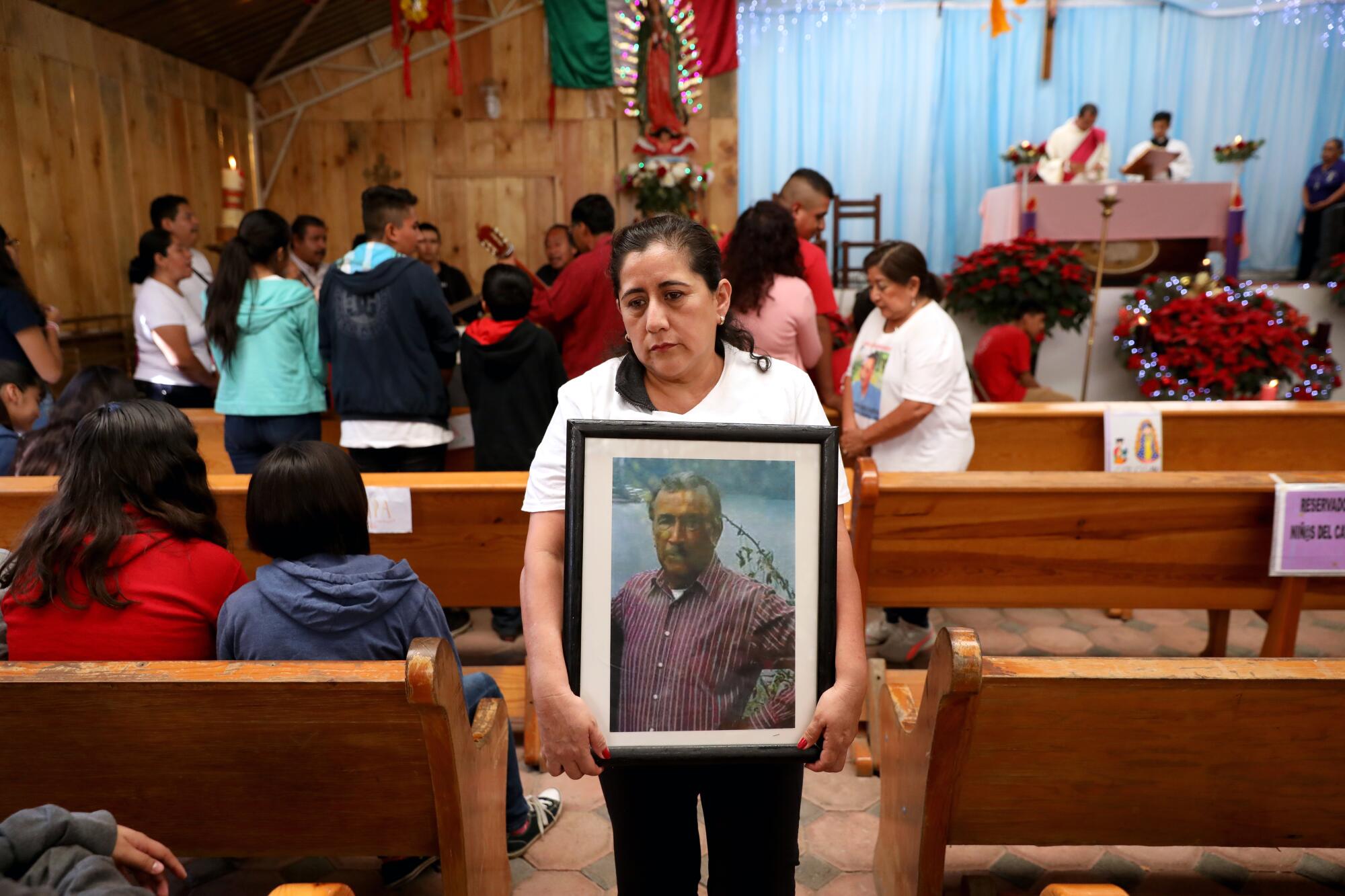
- Share via
Tepoztlán, Mexico — Juan Carlos Quiroz was working late in Mexico City on March 16, 2017, when his older sister called with distressing news. That afternoon, in the family’s hometown a few hours away, their 71-year-old father had gone missing.
A retired middle-school principal who often had his nose in a newspaper, Albino Quiroz Sandoval had left home that afternoon to run an errand at a nearby hardware store.
Family members searched the cobblestone streets of Tepoztlán, a town of 14,000 set high in a mountain range in the state of Morelos, and eventually found his Toyota sedan nearly a mile from the store.
Going on the assumption that his father had been kidnapped, Juan Carlos set out the next morning to file a missing person’s report — a process that took 12 hours and required him to visit four separate government offices.
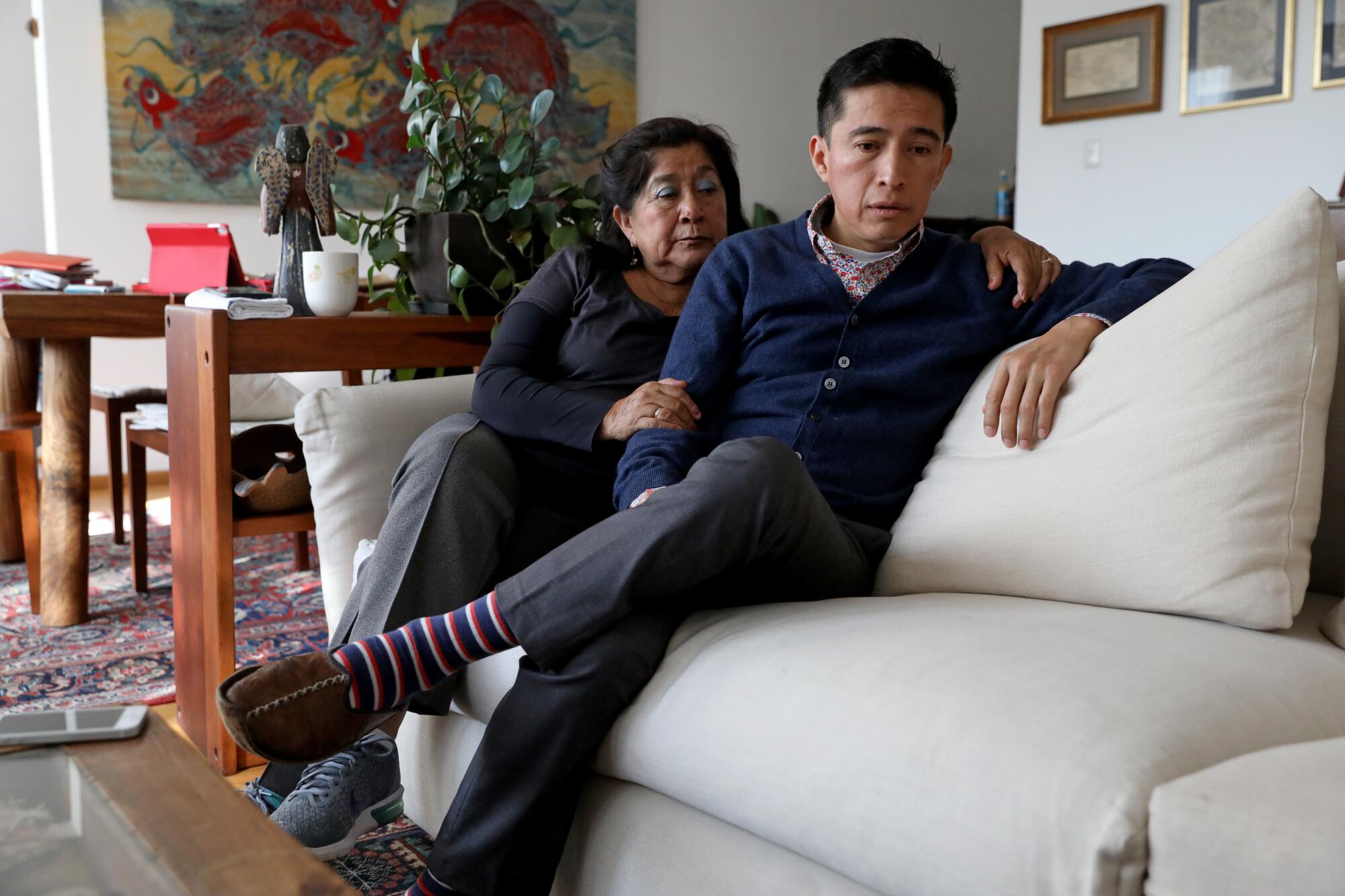
That same day, police sent a lone officer from the state capital of Cuernavaca to investigate, but she left after finding no leads. As the hours passed and nobody called demanding ransom, it became clear Albino had not been kidnapped.
The story might have ended there: another unsolved disappearance in a nation where more than 40,000 people are registered as missing and the homicide rate this year is at a record high, with more than 31,000 killings.
Rampant impunity prevails in Mexico despite a 2016 overhaul of the justice system aimed at winning more convictions. At least in the short term, the sweeping changes appear to have only made it harder to prosecute crimes, as new due-process requirements are routinely violated by under-equipped forensic agents, poorly trained prosecutors and bribe-taking police officers.
Just 5% of killings in Mexico end in a conviction. The obstacles are especially daunting in Morelos, where in 2018 the conviction rate was less than 1%.
Juan Carlos and his family quickly realized that they were up against not only whoever was responsible for Albino’s disappearance — but also their own government.
Many families — especially those with less education or fewer resources — would have given up. But Albino, who rarely missed a day of work in his 48 years as an educator, had imbued each of his four children with a strong moral compass and devotion to the truth.
He gave Juan Carlos a copy of “The Odyssey” when he was just 8 years old and watched proudly as his son left to study at a prep school in Mexico City at 15, earned a master’s degree in international relations at Johns Hopkins University at 31 and eventually became an energy analyst for the Mexican government.
And so Juan Carlos put his pain aside and launched his own probe.
“I realized that it wasn’t my job to grieve,” he said recently. “I had to look for answers, or I wasn’t going to get any.”
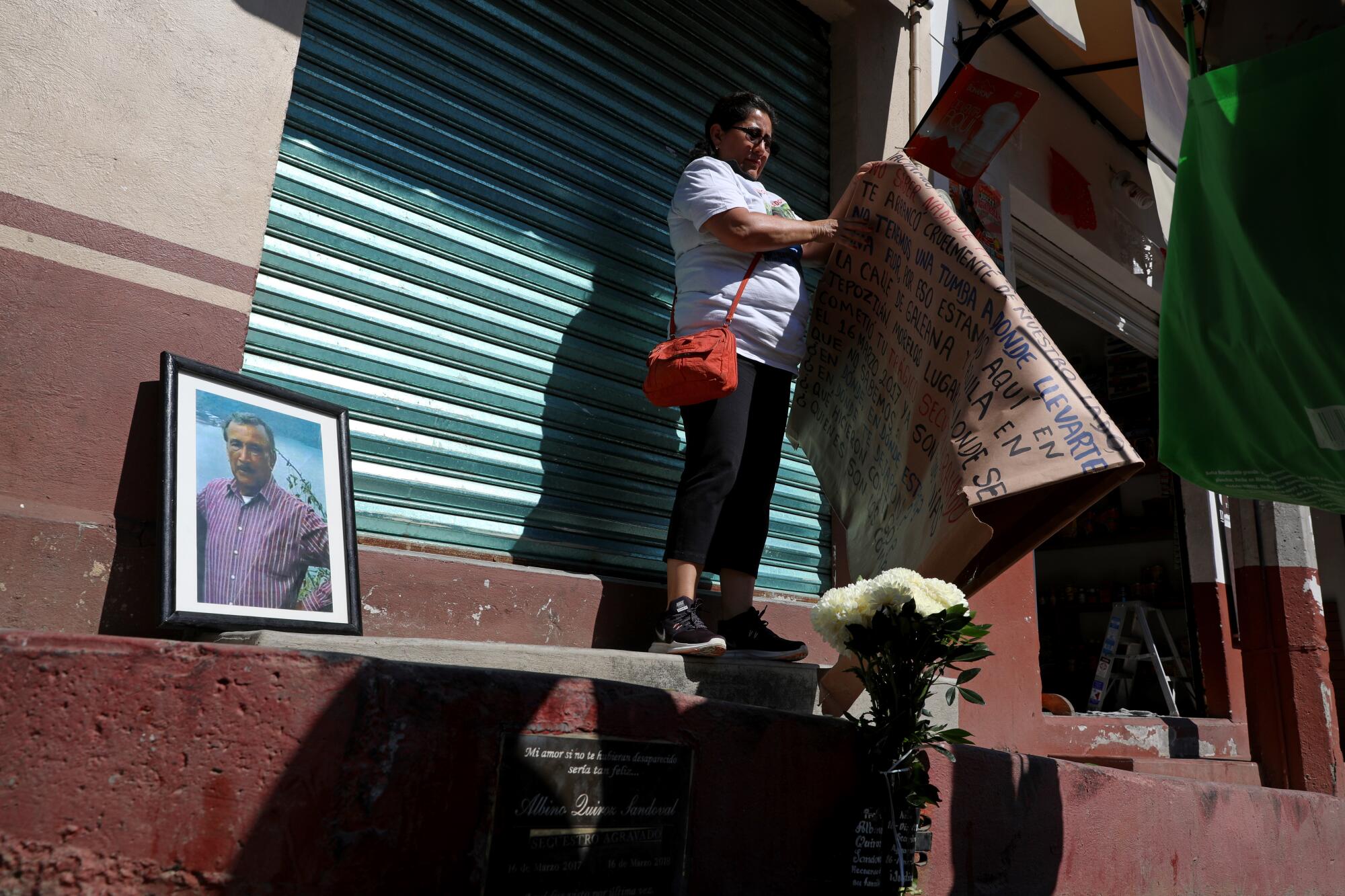
***
Two days after his father disappeared, with morning mist still clinging to the mountains, Juan Carlos set out on foot to search for shops outfitted with surveillance cameras.
The police hadn’t checked.
By that afternoon, he had his first clue: a video showing his father leaving the hardware store, getting into his car and driving in the opposite direction of his home.
The family scored another breakthrough that night. Rumors were circulating that Albino had contacted a municipal official for help recovering money he had lent to a local man who was putting him off with threats of violence.
The family rushed to Albino’s wooden desk and found several handwritten receipts showing that he had indeed lent more than a thousand dollars to a man named Juan Carlos Reyes Lara.
The name was instantly recognizable to Albino’s wife, Maricela, who remembered Reyes coming to the house three times asking for money to help a daughter he said was in the hospital. Albino paid him twice, explaining to Maricela that it was “the humane thing” to do.
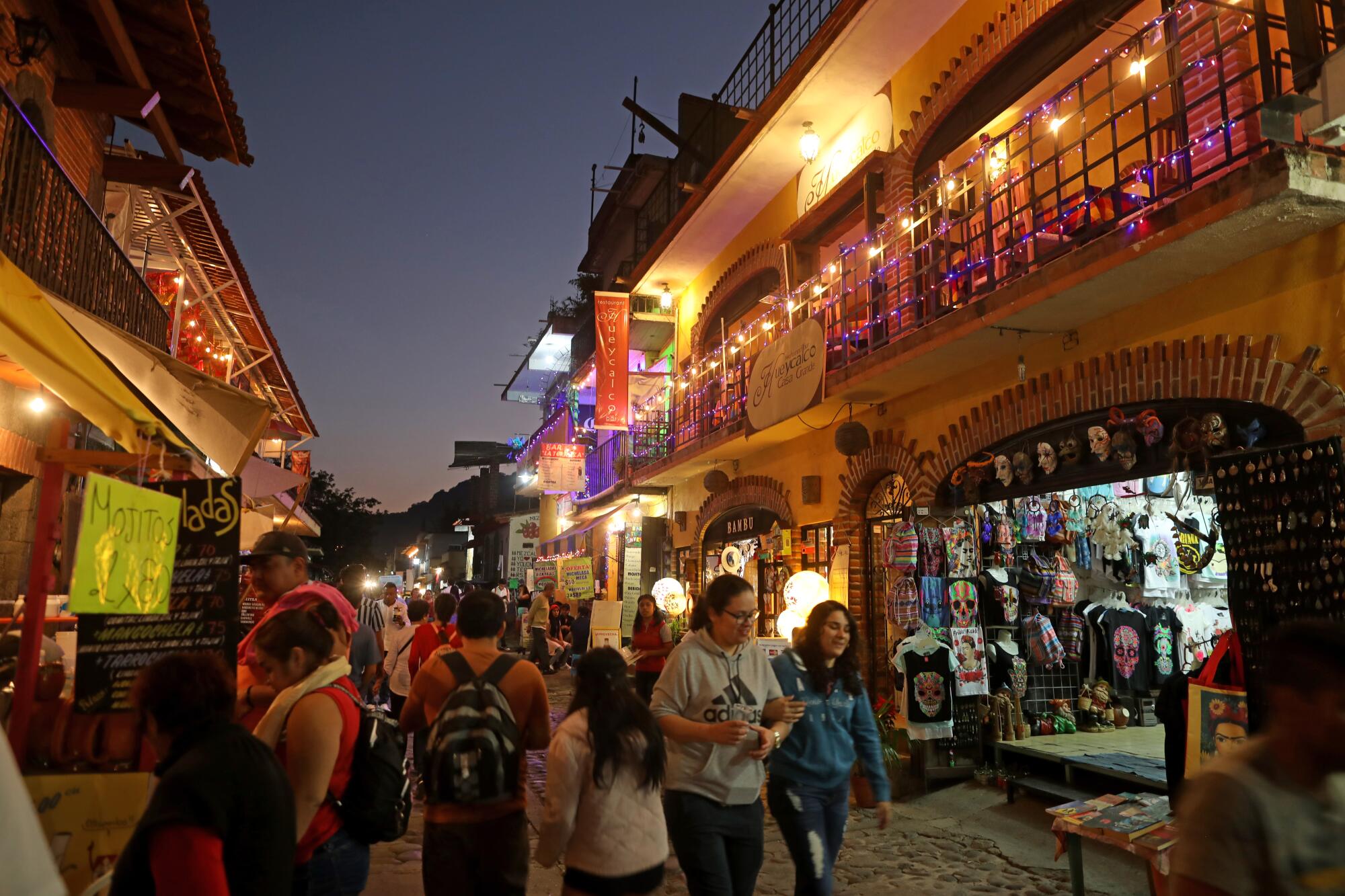
Reyes, who worked as an attorney specializing in land deals and had once served on the Tepoztlán police force, was known around town to brag about his karate skills and supposed connections to organized crime. His small storefront office was located on the street where Albino’s car had been found.
Juan Carlos told police about what he viewed as an explosive new lead, but they showed little interest.
So he began to comb Tepoztlán for anything he could learn about the karate-loving ex-cop. Five days after his father’s disappearance, he found a retired teacher who said she, too, had once loaned money to Reyes — and that he had threatened her when she asked to be repaid.
“I’ll kill you and your family,” she said he had shouted at her in a busy market. “And I’ll disappear the bodies!”
Juan Carlos had been holding on to hope that his father was still alive, but that evaporated when another woman told him that a witness — who she was too afraid to name — had seen a man who looked like Albino being attacked and had reported it to a local police officer.
When Juan Carlos returned to Cuernavaca to recount the story for police, the officer taking his report asked him to lie and say that he himself had witnessed his father being beaten.
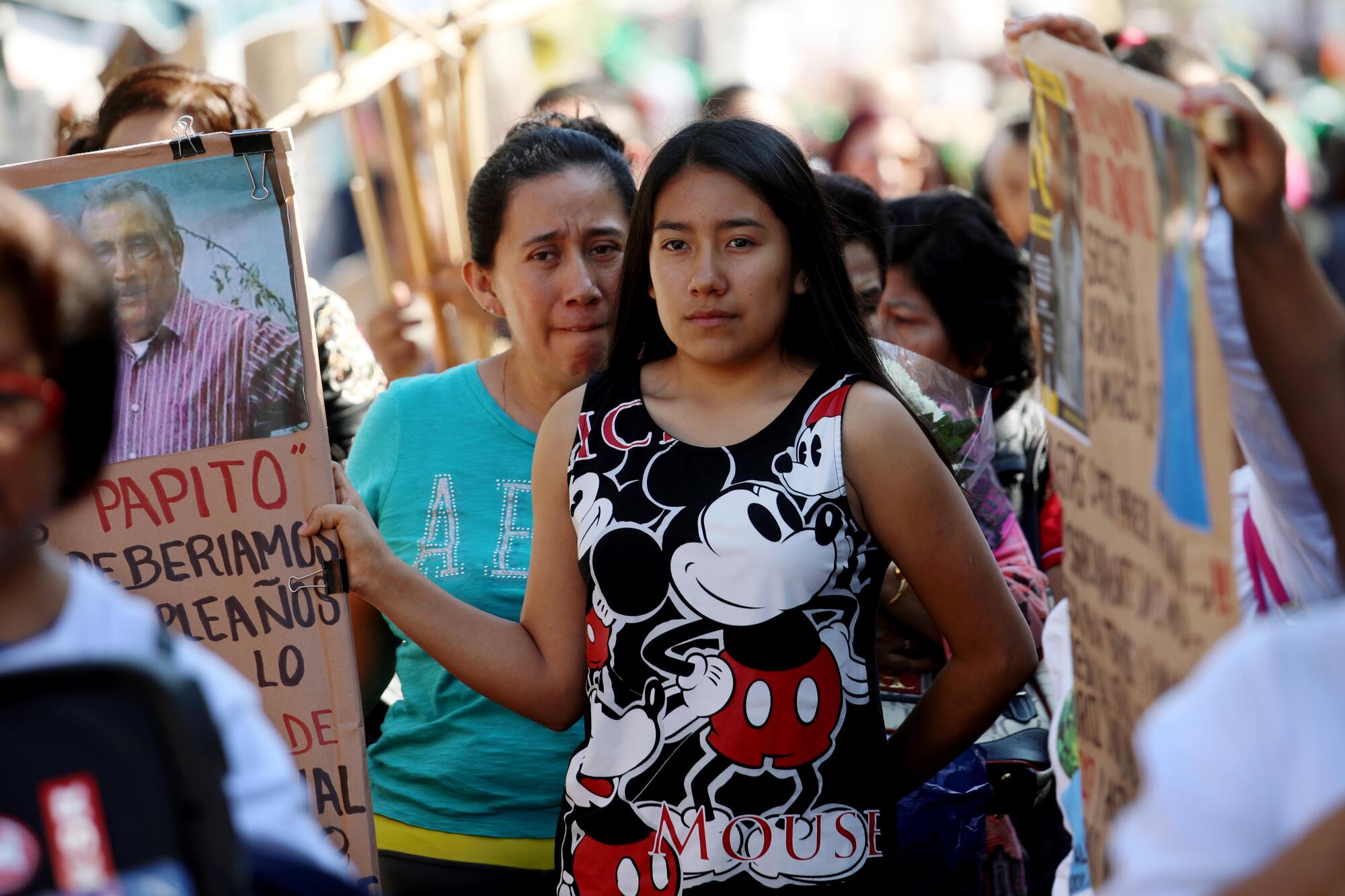
“He told me that it wasn’t enough, that no judge would give an order to apprehend a suspect based only on second-hand declarations,” Juan Carlos recalled. “I told him, ‘No, this is all I’m saying.’”
His older sister Georgina worried that Juan Carlos was out of touch with the realities of Mexico.
“You don’t know how corrupt it is,” she told him. “You believe in laws, but the laws aren’t followed here.”
***
It didn’t take long for Juan Carlos and his siblings to track down the officer who had been on duty near Reyes’ office the day of the disappearance.
The officer explained that he had been too busy directing traffic to investigate the complaint about the beating and that his supervisors had also ignored the tip.
He didn’t apologize — but he offered the name of the witness.
Juan Carlos found the witness working in a nearby shop, but the man was too nervous to speak in Tepoztlán. They met that afternoon in a cafe in Cuernavaca, where the man told his story — which he later recounted to The Times.
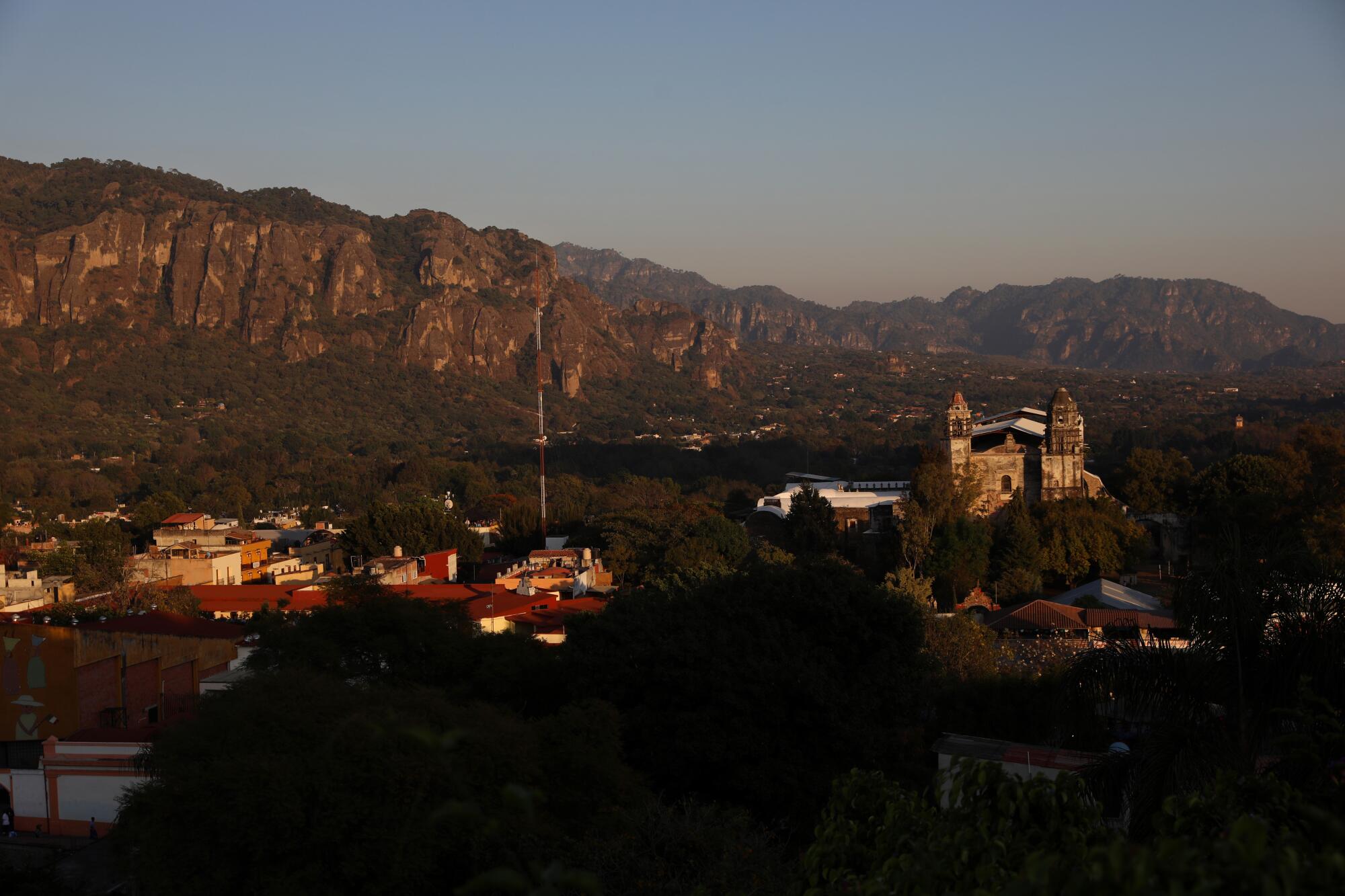
He was passing Reyes’ office on the afternoon of March 16 when he heard screams. Inside the open storefront a younger man loomed over an older man sitting in a chair, striking him with his fists.
“He’s elderly!” the witness yelled. “There’s a better way to resolve this.”
The old man struggled to his feet and looked down for a moment — only to be surprised by a knockout punch. He collapsed to the floor, where he lay motionless.
Reyes ordered the witness to leave: “Go away or I’ll hit you, too!” Then he slammed shut the metal door to his storefront.
At Juan Carlos’ urging, the witness agreed to share his story with authorities. In the months afterward, the man’s wife would grow so terrified that they would be targeted for snitching that they stopped letting their children play outside.
But the witness said he believed it was his obligation to participate in the case, even if many Mexicans would have stayed silent out of fear of organized crime.
“We all want the system to change,” he said. “But if you don’t do your part, it will never happen.”
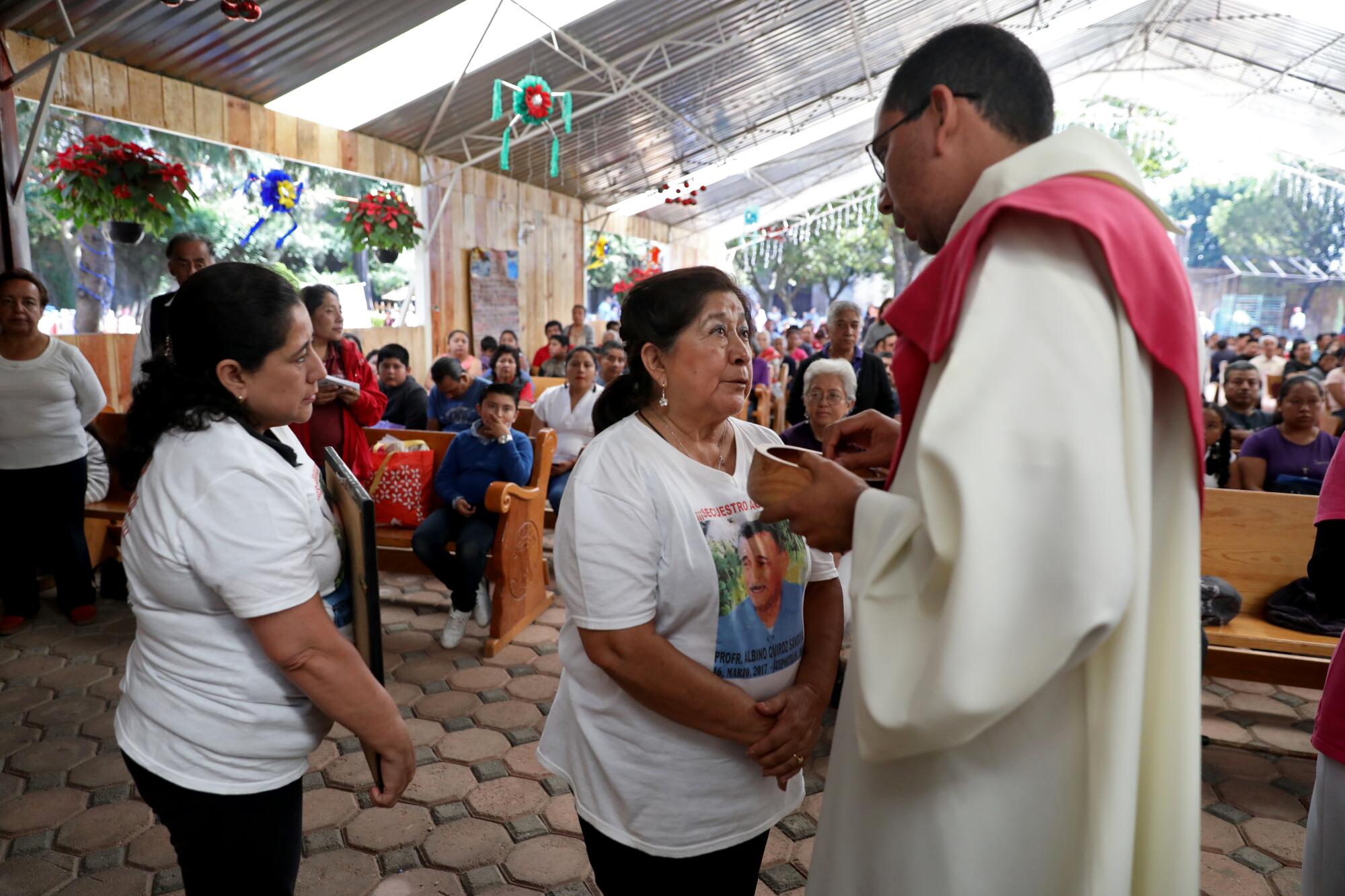
***
Two Sundays after the disappearance, in the early morning hours of March 26, a caravan of state police trucks rumbled into Tepoztlán.
Officers burst into the home that Reyes shared with his wife and took him away in handcuffs. Investigators said his office appeared to have been recently scrubbed with bleach and repainted, but DNA testing showed with near certainty that a few drops of blood found on a chair there had come from Albino.
Justice seemed tantalizingly close, but Juan Carlos realized that government incompetence, indifference and possibly corruption remained serious obstacles.
Albino’s body was still missing, and authorities were doing little to find it. In August, his family persuaded state investigators to help them search on land that Reyes owned. But the officials showed up to the muddy tract without shovels or other basic supplies.
It also became clear that prosecutors had made critical errors.
In a preliminary court hearing a few days after the arrest, prosecutors somehow failed to mention that they had an eyewitness account of the beating. The judge reduced the charge against Reyes from kidnapping to illegal detention, giving Reyes the right to ask to be released while waiting for the trial.
When Reyes petitioned the court to be let out of jail, a prosecutor told Juan Carlos and his family that the best option would be to avoid a trial entirely and instead try to negotiate a deal with the defendant through an alternative dispute resolution mechanism that is a key feature of the new justice system. Reyes would have to pay the family restitution, but not admit guilt.
The family was stunned. Maricela walked out of the meeting thinking the family had no other choice.
They were supposed to be receiving guidance from an attorney appointed by the government in accordance with a mandate of the new justice system, but the attorney had missed crucial court dates and complained she was overworked.
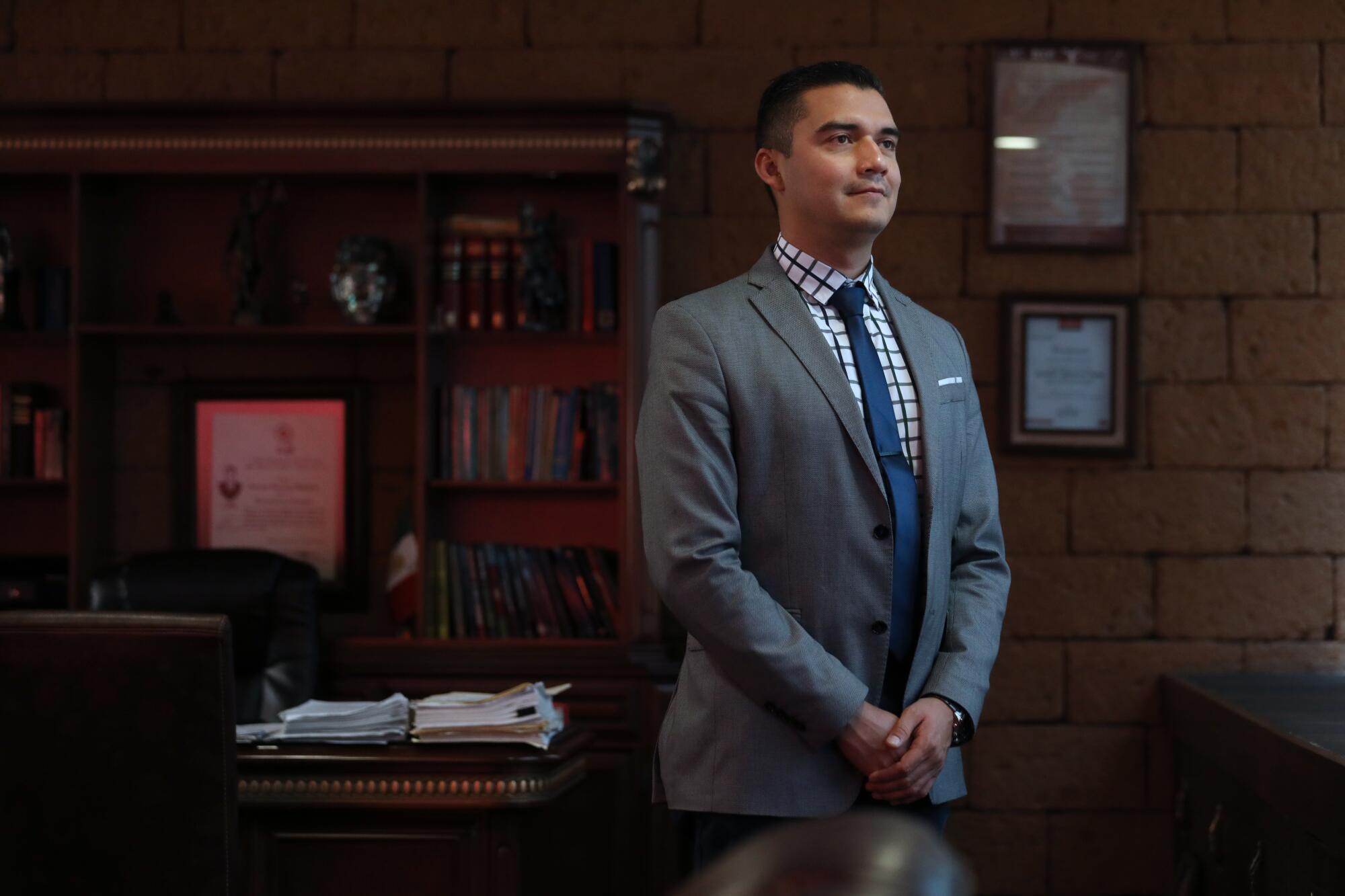
Not ready to give up, Juan Carlos turned to a human rights group for assistance. That’s when he found Efraín Márquez Dur´án.
***
The son of an electrician and a seamstress, Márquez always dreamed of being a doctor. He switched paths when he got a scholarship to study law.
He graduated in late 2007 and took a job clerking for judges in Morelos on the cusp of the most radical overhaul of the justice system since the Mexican Revolution.
The old system was notoriously opaque, with cases argued via stacks of paperwork presented to a judge. Bribery and torture were common, and police and judicial appointees were often correctly viewed as instruments of state control.
The system was especially ill-equipped to deliver justice in the growing number of cases related to drug trafficking and other organized crime. In 2008, with homicides rising, the government made a constitutional change that then-President Felipe Calderón said would modernize the justice system.
The transition was carried out over eight years and was supported with more than $400 million in U.S. aid.
The new system was supposed to strengthen the independence of judges, turn police into impartial investigators and shift trials to public events held in a courtroom.
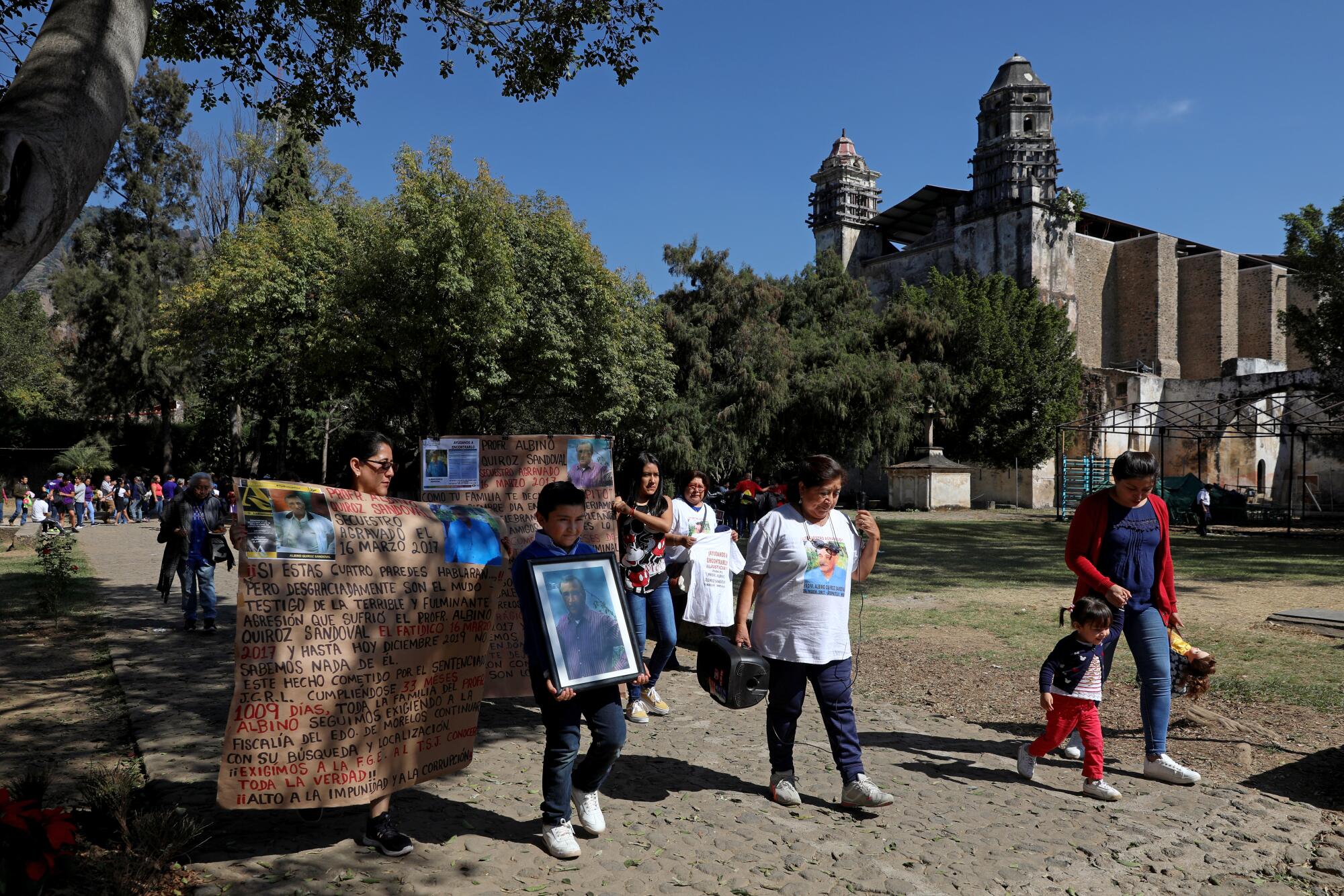
But in holding officials to a high standard, the new system has created its own controversies.
The changeover was chaotic, with some states waiting until just a few months before the system took effect to begin training personnel. Police complain about stacks of new paperwork, judges complain about mistakes on police reports and prosecutors blame judges for letting criminals go.
Suspects are now presumed innocent, putting the burden on prosecutors to prove their guilt and follow due process to prevent defendants from going free on procedural violations.
Lawmakers in some parts of the country have blamed the new system for a spike in killings across Mexico. This year, President Andres Manuel Lopez Obrador successfully pushed lawmakers to roll back part of the reform and triple the number of crimes that require mandatory pretrial detention.
Judicial experts insist that the new system was badly needed and will improve with time. For them, people such as Márquez represent the great hope that the overhaul will eventually succeed.
He was trained by a U.S. program in the new system, including how to carry out oral trials, and led workshops of his own in which he explained the new system to judges.
He eventually became a criminal defense attorney, often helping drug traffickers beat the justice system by finding flaws in the state’s investigation and presentation of its case.
But when Juan Carlos and his wife, Valerie, came to his office in Cuernavaca in late 2018 and told them about Albino, Márquez was moved. Years earlier, his sister-in-law had been killed by a drug trafficker, and Márquez had represented her family in his very first trial, helping prosecutors win a murder conviction.
Looking over the documents Juan Carlos had brought, Márquez instantly spotted problems.
Investigators, for example, had obtained some of Reyes’ phone records without proper authorization, and they had also failed to present in their documents to the courts the receipts that showed that Reyes owed Albino money.
If he took the case, Márquez said, the biggest challenge would be making the state do its job.
It seemed to Juan Carlos that somebody finally understood his situation.
His wife texted him there in the meeting: “Hire him!”
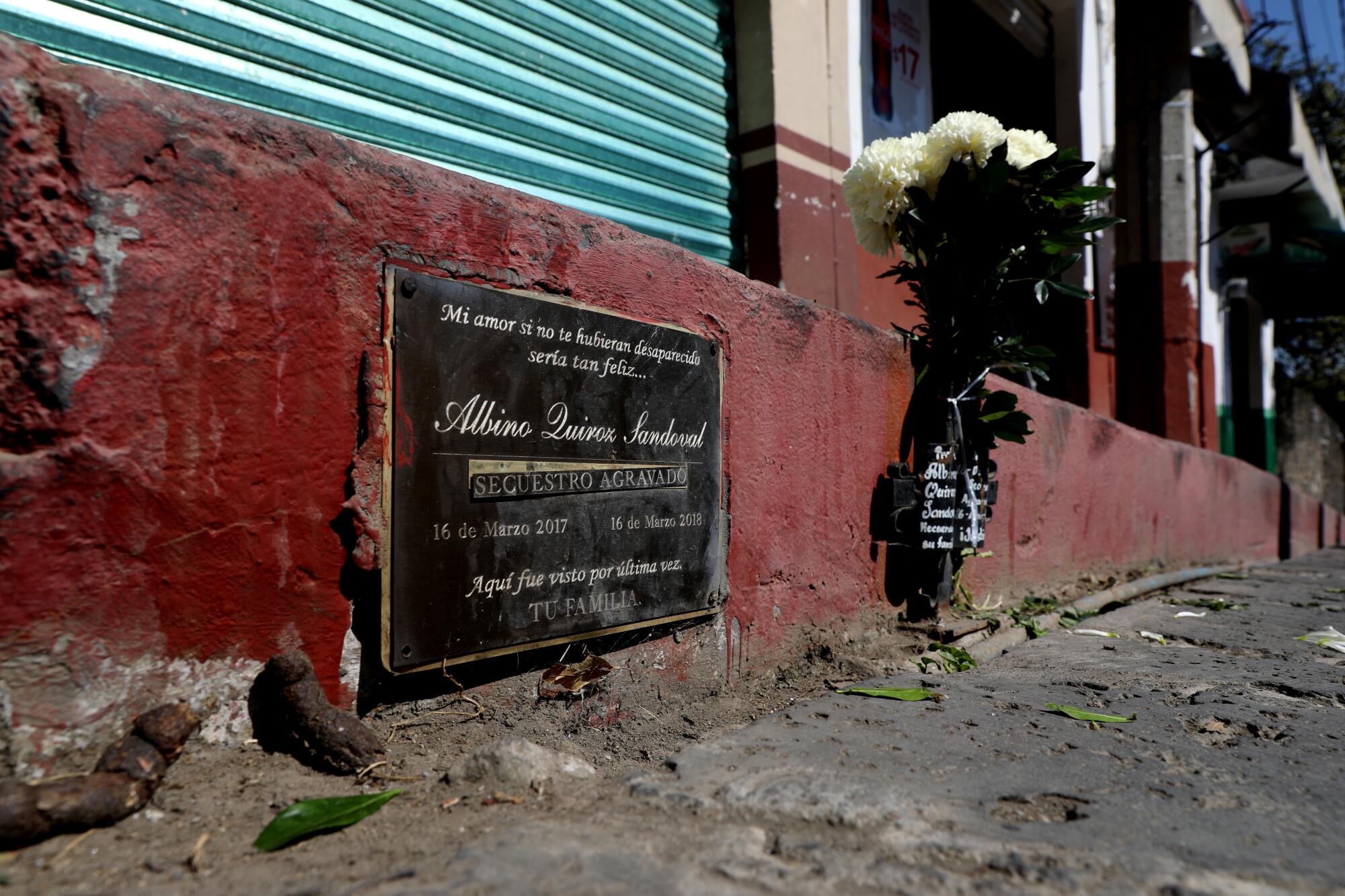
***
This past spring, a three-judge panel convened in western Morelos in a sprawling new courthouse built next to a prison that is notorious for frequent riots.
It had taken a year of news conferences and tense meetings with Morelos officials, but Márquez had successfully lobbied the state to assign a new prosecutor to Albino’s case, and that prosecutor had pushed for Reyes to be tried on the more serious charge of kidnapping with intent to harm.
On the first day of court, March 6, Márquez and the prosecutor sat together at a small desk. Behind them was the Quiroz family, with Juan Carlos sitting up perfectly straight, his hands held tensely in his lap.
On the other side of the courtroom, Reyes sat alongside his defense attorney dressed in an orange polo shirt.
Juan Carlos’ mother took the witness stand in all white later that day. She told the judges about Reyes’ visits to the house and the last time she had seen Albino. They had shared a lunch of pozole and he had assigned their granddaughter some math problems to work on while he ran to the hardware store.
A few days later, the state’s most important witness spoke: the man who said he had seen Albino being attacked. The man’s name was withheld and his testimony was broadcast to the courtroom on a monitor that obscured his face and voice.
When asked by the prosecutor if Reyes was in the room, the man said: “I’m looking at him.”
In seven days of hearings, held over a three-week period, 22 witnesses and experts testified. On March 27, the judges deliberated for less than 10 minutes before returning a verdict: guilty.
Reyes slumped in his chair. A few days later, he would be sentenced to 50 years in prison.
In the gallery, the Quiroz family sat stone-faced, Juan Carlos gripping his mother’s shoulder. In their view, the verdict was only partial justice.
Authorities had failed to pursue two possible accomplices who were seen driving with Reyes two hours after the disappearance. The family says there are phone records that could have led police to identify one of the men, but prosecutors never requested them.
Prosecutors have told the family that they should be happy with the conviction, which is much more than most victims ever get.
The state attorney general’s office celebrated the outcome, releasing a statement saying it helps “guarantee the prosecution of justice in the State of Morelos” and that investigations into Albino’s whereabouts continue. The office did not respond to multiple requests for additional comment.
Juan Carlos says he will not rest, because without his father’s body, without a grave, the family can’t properly mourn.
Many of his relatives have lost hope in the justice system.
But he says he believes that if Mexico continues to invest in the overhaul, its promise will eventually be realized.
“I think it’s our only option to escape the cruelty of the violence that we’re living,” he said. “We have to be able to come together again as members of the same community and make the criminals responsible for their actions.”
Earlier this year, he moved to Rome, where his wife, an art restorer, got a job. He has continued to try to pressure authorities from afar.
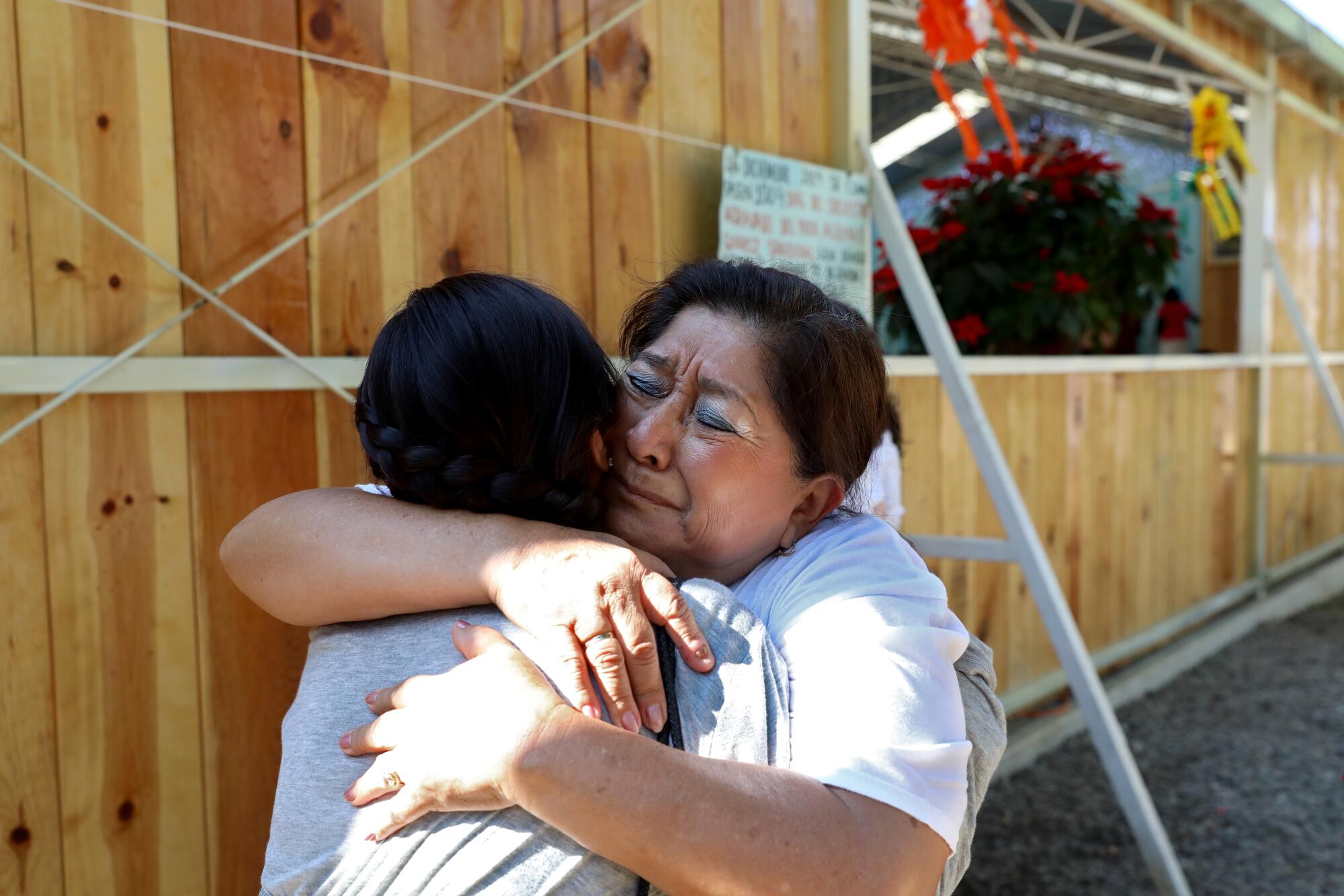
Back home, his family members are making sure that the case is not forgotten. Earlier this month, on the day before what would have been Albino’s 73rd birthday, the family attended Sunday Mass in Tepoztlán and then led a solemn march through town.
“Albino Quiroz, return home,” Maricela cried over a portable loudspeaker. “Albino, your family is looking for you.”
Their destination was Reyes’ former office, where Albino was last seen.
Maricela walked into the middle of the cobblestone road, forcing traffic to stop for her. Cars honked. A driver leaned out of his window and told her to move out of the way. She waved them off.
She looked at the office as if her husband was still there. “Albino, we should be celebrating your birthday,” she cried. “If only these four walls could talk.”
Special correspondent Cecilia Sanchez in the Mexico City bureau contributed to this report.
More to Read
Sign up for Essential California
The most important California stories and recommendations in your inbox every morning.
You may occasionally receive promotional content from the Los Angeles Times.











